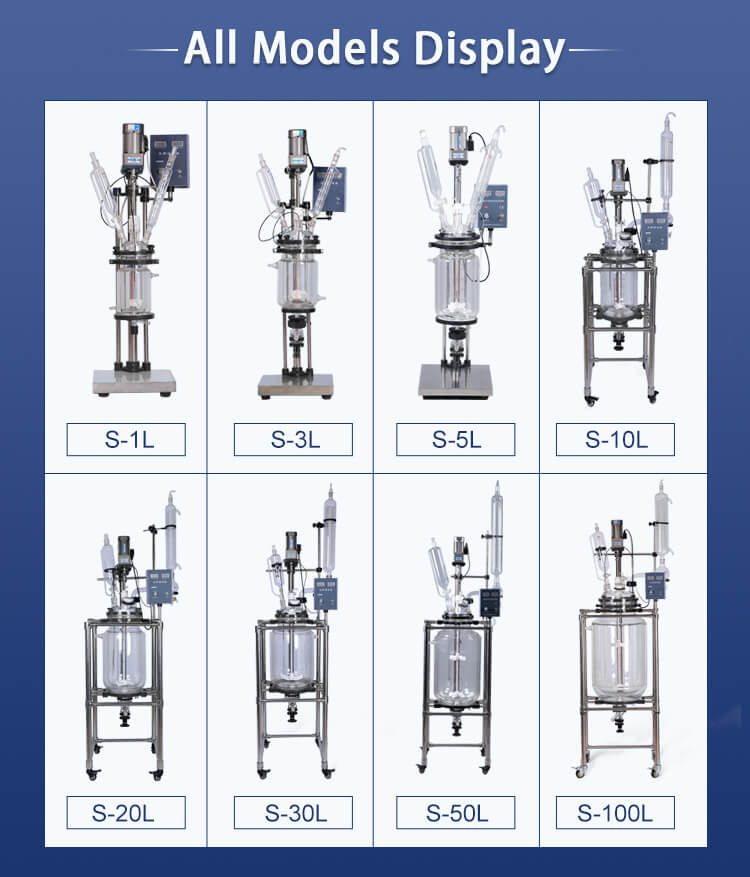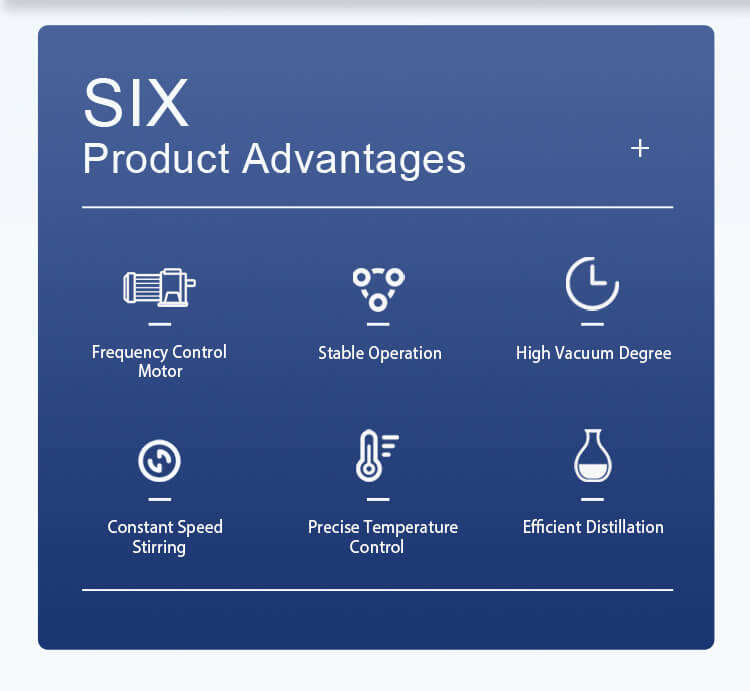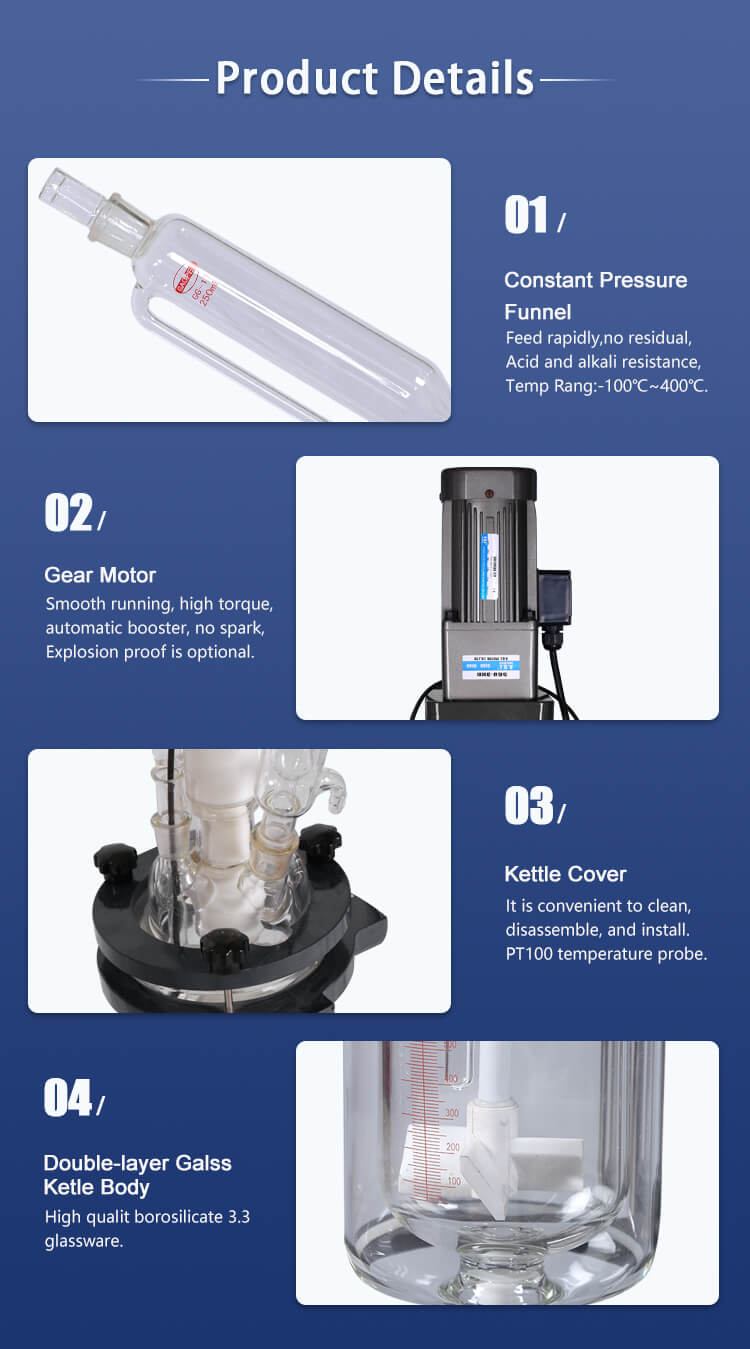China Glass Reactor System: Advancements and Applications
Understanding the China Glass Reactor System
In the world of chemical engineering and research, the 100l glass reactor stands out as a remarkable innovation that has revolutionized various processes in laboratories and industries. This versatile and efficient apparatus plays a crucial role in conducting experiments, synthesizing compounds, and scaling up production. In this article, we delve into the features, advancements, and applications of the china glass reactor system.

Features and Components
The china glass reactor system consists of several key components that work together seamlessly to facilitate precise and controlled reactions. These components typically include a glass vessel, heating and cooling systems, agitation mechanisms, and a control panel. The glass vessel, often made from high-quality borosilicate glass, provides excellent visibility into the reaction process while ensuring chemical compatibility.
Heating and cooling systems are essential for maintaining optimal reaction conditions. These systems are capable of achieving a wide range of temperatures, from cryogenic levels to high-temperature reactions, enabling researchers to explore various chemical reactions effectively. The agitation mechanisms, often driven by powerful motors, ensure proper mixing and homogeneity of reactants, which is vital for reaction efficiency.

Advancements in China Glass Reactor Systems
Over the years, significant advancements have been made in China's glass reactor systems, enhancing their capabilities and usability. One notable improvement is the integration of automation and digital controls. Modern china glass reactor systems come equipped with user-friendly touchscreen panels that allow researchers to set and monitor various parameters such as temperature, pressure, and agitation speed. This automation not only simplifies operation but also enhances the reproducibility of experiments.
Moreover, safety features have been bolstered to ensure the well-being of operators and the environment. Many systems now include built-in safety protocols that can detect anomalies such as overheating or pressure buildup and trigger automatic shutdown procedures. This advancement significantly reduces the risk of accidents and ensures a secure working environment.

Applications of China Glass Reactor Systems in Chemical Research
The applications of the china glass reactor system span across a wide range of industries, including pharmaceuticals, petrochemicals, materials science, and more. In chemical research, the system is commonly used for small-scale reactions aimed at developing new compounds or optimizing existing processes. The ability to precisely control temperature and agitation speed makes it a valuable tool for studying reaction kinetics and thermodynamics.
In pharmaceutical research, the china glass reactor system is instrumental in the synthesis of drug intermediates and active pharmaceutical ingredients (APIs). The visibility provided by the glass vessel allows researchers to monitor the progress of reactions visually, ensuring the desired outcomes are achieved. Additionally, the system's flexibility in accommodating different reaction conditions contributes to the efficient development of pharmaceutical processes.
Scale-up and Industrial Production
Beyond research, the china glass reactor system plays a critical role in scaling up chemical processes from laboratory to industrial production. By understanding the behavior of reactions on a smaller scale, engineers can optimize parameters for larger reactors, minimizing waste and maximizing yield. The insights gained from glass reactor experiments pave the way for efficient and cost-effective industrial processes.

Environmental Impact and Sustainability
As sustainability becomes a more prominent concern, the china glass reactor system offers advantages in terms of its environmental impact. The use of borosilicate glass, which is resistant to corrosion and degradation, ensures the longevity of the system. Additionally, the precise control of reaction conditions leads to reduced waste and byproducts, aligning with green chemistry principles.
Future Trends and Outlook
Looking ahead, the future of china glass reactor systems holds promise for even greater innovation. Advancements in materials science might lead to the development of more robust and resistant glass variants, expanding the range of reactants and conditions that can be safely explored. Integration with artificial intelligence and machine learning could further enhance automation, enabling real-time adaptive control of reactions.
In conclusion, the china glass reactor system stands as a testament to the country's commitment to scientific advancement and technological innovation. Its contributions to chemical research, pharmaceutical development, and industrial processes are immeasurable. As these systems continue to evolve, they will undoubtedly play a pivotal role in shaping the future of chemical engineering and scientific discovery.


